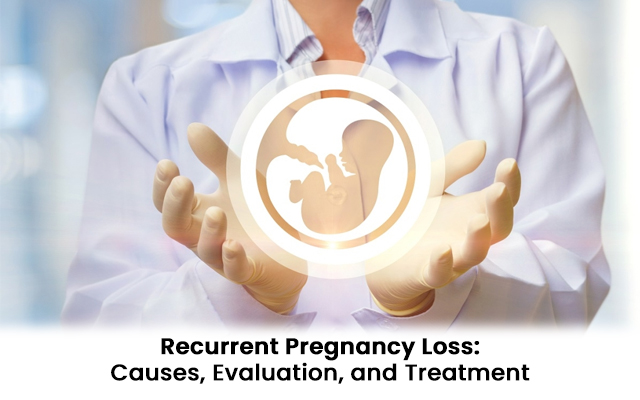A brief outline of recurrent pregnancy loss
The journey of pregnancy is often viewed as a time of joy and anticipation, but for some couples, it can be marred by the heartbreak of recurrent pregnancy loss (RPL). Defined as the unfortunate experience of two or more consecutive pregnancy losses before the 20th week of gestation, RPL affects a significant number of couples worldwide. In this outline, the best infertility doctor in Dumdum highlights the causes, evaluation, and treatment of recurrent pregnancy loss.
Causes of recurrent pregnancy loss
There are various factors that can contribute to recurrent pregnancy loss. Genetic abnormalities, both chromosomal and non-chromosomal, are a common cause. Hormonal imbalances, uterine abnormalities, autoimmune disorders, and certain medical conditions, such as polycystic ovary syndrome (PCOS) and diabetes, can also play a role.
Lifestyle factors, including advanced maternal age, smoking, alcohol consumption, and obesity, may increase the risk as well. Additionally, infections, blood clotting disorders, and environmental factors are among the other potential culprits.
Evaluation
When faced with recurrent pregnancy loss, a thorough evaluation is essential to identify the underlying causes. The evaluation typically involves a comprehensive medical history review, genetic testing for both partners, blood tests to assess hormone levels and autoimmune markers, imaging tests to evaluate the uterus and other reproductive organs, and specialized tests to detect blood clotting disorders and infections.
This comprehensive evaluation aims to identify any treatable factors and provide insight into the most appropriate course of action.
The treatments
Treatment for recurrent pregnancy loss depends on the underlying cause(s) identified during the evaluation. In cases where genetic abnormalities are detected, genetic counseling and assisted reproductive technologies, such as preimplantation genetic testing, may be recommended to increase the chances of a successful pregnancy.
Hormonal imbalances can be addressed through medications and hormonal supplementation. Uterine abnormalities, such as fibroids or septum, may require surgical intervention by the infertility specialist near you. Immune disorders can be managed with medications to modulate the immune response. Lifestyle modifications, including weight management, smoking cessation, and alcohol avoidance, are crucial for optimizing the chances of a healthy pregnancy.
Psychological support is a vital component of the treatment process for couples experiencing recurrent pregnancy loss. The emotional toll of multiple pregnancy losses can be overwhelming, and seeking support from mental health professionals or support groups can help individuals and couples navigate through the grief, anxiety, and stress associated with RPL. Emotional well-being and coping strategies are essential elements of the holistic approach to managing recurrent pregnancy loss.
While recurrent pregnancy loss can be a devastating experience, it is essential to remember that there is hope. Seeking the guidance of one of the top ten infertility doctors in Dumdum and maintaining open communication with healthcare providers is crucial throughout this journey. In conclusion, recurrent pregnancy loss is a challenging and distressing experience that affects many couples. Understanding the causes, undergoing thorough evaluation, and exploring appropriate treatment options are key steps in managing this condition. So, don’t lose hope yet; consult the best infertility specialist near you, and you, too, will be able to forge a solution ahead out of the vicious circle of recurrent pregnancy loss.
 8282867107
8282867107 sukhamoy83@gmail.com
sukhamoy83@gmail.com
